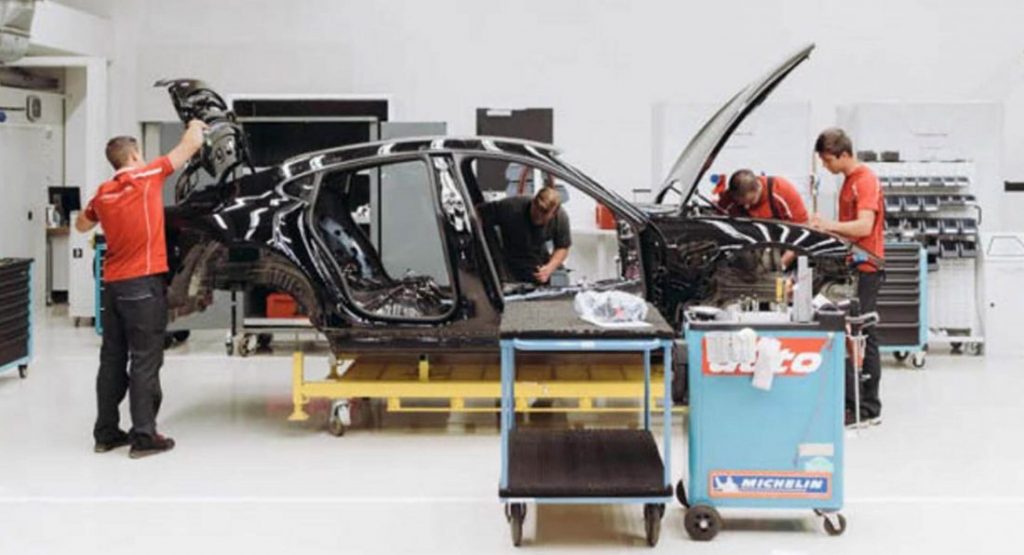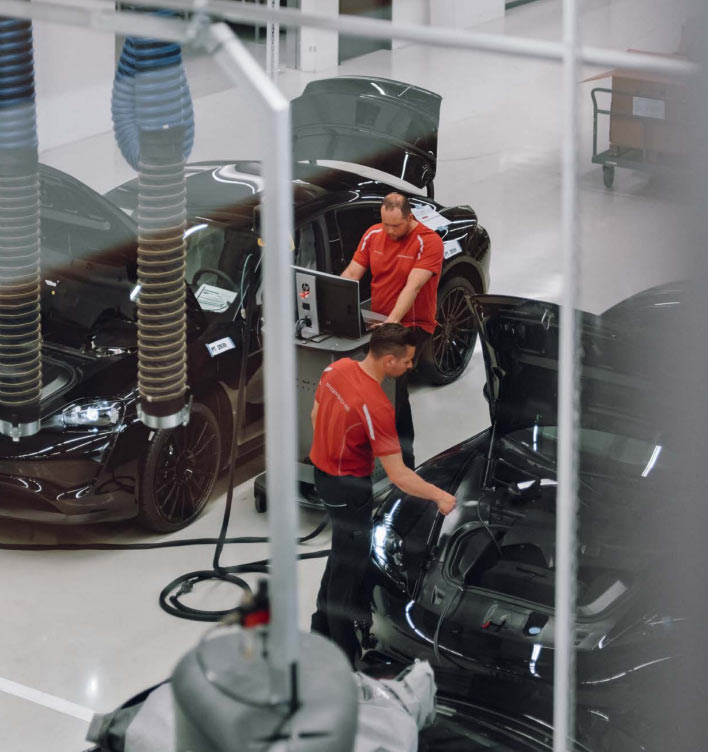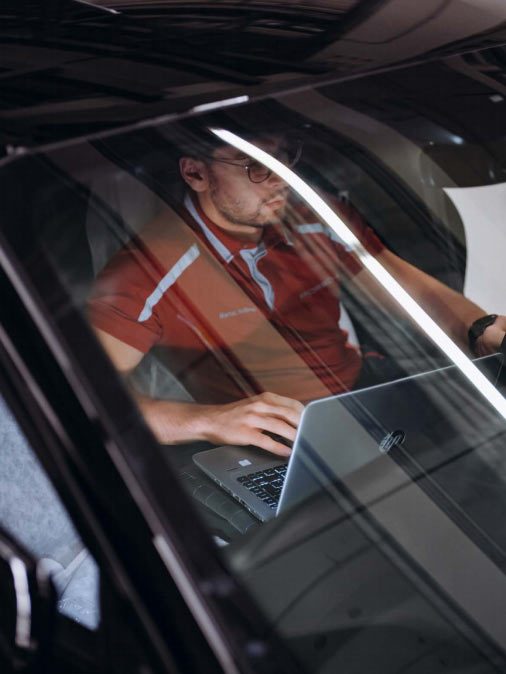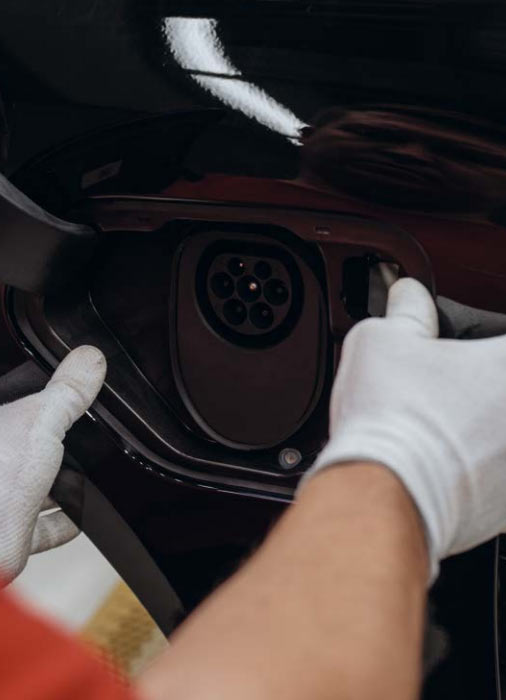Porsche has quietly released a handful of new images of the upcoming Mission E.
Tucked away in a report that few people will probably read, the pictures give us a better look at the electric sedan. While they don’t reveal much, the images show the model will have a small frunk – front trunk – where the engine would normally be located.
We also get a glimpse of the uncamouflaged bodywork and the relatively large trunk opening. The photos also tease the Mission E’s LED taillights and its electric charging port.
Porsche didn’t reveal too many details about the model but said the car will be launched in 2019 with clear, puristic and pioneering Porsche e-Performance. Speaking of which, the car will have over 600 PS (441) and this will enable the model to accelerate from 0-100 km/h (0-62 mph) in less than 3.5 seconds. The company also said drivers can expect to travel 500 km (310 miles) on a single charge.
Porsche says the Mission E will be an “exclusive sports car which sets new standards as the sportiest and … most technologically sophisticated car of its class.” The company went on to describe the model as a “convincing answer” to the challenges of e-mobility as the model will combine sustainability and electromobility with performance and driving pleasure.
In another part of the report, Porsche CEO Oliver Blume said the “Mission E will be the sportiest and the most technologically advanced vehicle in its class.” He also predicted the “sportiest Porsche will have an electric drive” unit by 2030. Blume even suggested the 911 might be an electric vehicle by then.
Speaking of the 911, Blume said the next-generation model will “soon be here” and it will embrace “evolution instead of revolution.” As he explained, the company will “Renew everything while retaining an irreplaceable identity.”
On the subject of diesel engines, Blume said “There’s no reason to just suddenly abandon diesel” as the company “would not be able to completely make up the difference with petrol and hybrid engines.” He went on to say diesel engines are important to achieving their CO2 targets and many people “really don’t understand Germany’s current discussion about the future of diesel.”










